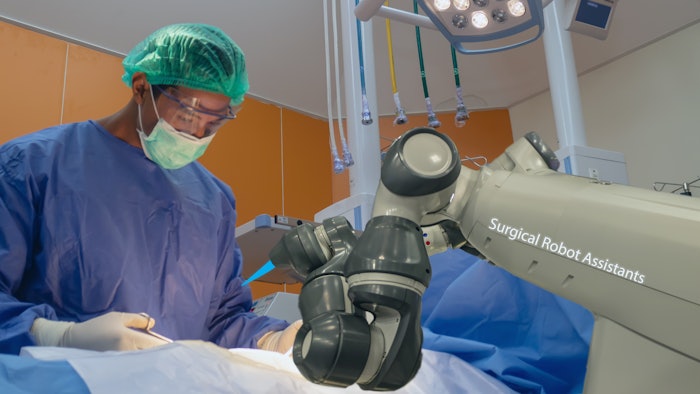Bringing artificial intelligence to the practice
Panelists explore what it can and cannot do for patient care.

Is the hype about artificial intelligence (AI) and its application to urology all that it appears to be, or is there more? Conversely, what does the application lack?
AI’s role in urology is at the core of the session, “Panel Discussion: Artificial Intelligence in Urology,” 1-1:45 p.m. on Friday, May 3, in the Stars at Night Ballroom. Led by Andrew Hung, MD, vice chairman for academic development at Cedars-Sinai Medical Center in Los Angeles, the session will break it all down, including a look at the generative nature of AI, ChatGPT and the basics, such as AI algorithms and machine learning.  From left: Prokar Dasgupta, MD; Andrew Hung, MD; Joseph Liao, MD; and Geoffrey Sonn, MD.
From left: Prokar Dasgupta, MD; Andrew Hung, MD; Joseph Liao, MD; and Geoffrey Sonn, MD.
“The session will focus on how technology can better help us diagnose urologic disease, prostate cancer, bladder cancer and other benign conditions,” Dr. Hung said. “Also, we’ll explore how AI can help to prognosticate and predict how our patients will do in the future and how we can better counsel them.
AI has captured the imagination and attention of both the lay public as well as urologists, said Dr. Hung, who is skilled in using AI in robotics and advanced laparoscopic techniques to treat urological cancers. He also has worked with surgery simulation technology, automated performance metrics and machine learning algorithms to predict surgical outcomes.
“There is tremendous potential for how AI can improve the way we detect and treat patients with urologic conditions. In fact, AI is already being utilized to detect urological diseases with greater accuracy than traditional methods,” he said. “This will help ensure we do not miss serious disease, and it will help us better tailor treatment to a patient’s condition.”
Given that AI is a relatively new practice tool, Dr. Hung said the biggest investment urologists must make is the commitment to integrate it into their practice workflow.
“The most concrete examples of this integration are in radiology (using MRI to detect prostate cancer) or pathology (using AI to determine if cancer cells are present),” Dr. Hung said.
Despite the benefits of bringing AI into the urology practice, Dr. Hung said there remain some uncertainties.
“We are still evaluating whether AI algorithms are reliable and fair across uses,” he said. “Until they are fully validated across large populations of patients, we cannot fully rely on them for patient care.”